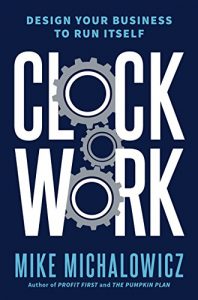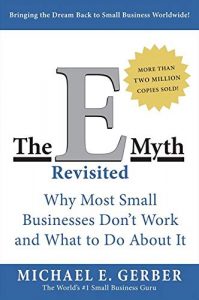
Without these five crucial people, you can’t bulletproof your business. Ryan Englin welcomes Tersh Blissett, the Founder of Service Emperor and Host of the Service Business Mastery Podcast. To make your business succeed, you need to have these five as your best friends: bookkeeper, insurance guy, lawyer, banker, and mentor. To make this strategy work, you need to have accountability. Take the time to check on them to see what they do daily. If you want to learn more about bulletproofing your business, you’d want to listen to this episode.
—
Bulletproof Your Business With These Five People With Tersh Blissett
It’s not every episode that we get to have someone who’s doing something different in the industry. We talked to a ton of experts that know their stuff, are working with their clients, and are getting amazing results. Our guest is someone who’s doing it. They are in the trenches, building a business, and doing something completely different, and it’s an HVAC company.
In fact, he’s got two competing businesses in the same market, serving different people without any brick and mortar presence. It’s doing amazing that he was named Top 40 Under 40 in the NEWS HVACR. He has his own podcast, the Service Business Mastery podcast. His goal is to give back to the industry that has done so much for him. I want to welcome to our show, Tersh Blissett. Thank you so much for being here.
I appreciate you having me.
I hear so many times out here, people got some good ideas. They know what works and what doesn’t work. They know what everybody is doing. You’re out there doing it and I love it. Tell me, what is one of the biggest myths of the industry from what you’re seeing right now?
One of the biggest myths, and it’s been proven to be a myth, is the fact that you must have a physical office space for you to attract good technicians and employees in general.
I’m confused. I don’t have to have a shop. I don’t have to have a physical office space. I can grow my business and people think I’m legit.
I’ll give you another caveat to that. You can physically appear to be way larger than you are without having the office space.
Help me break this down a little bit. How do you do this?
Enjoy the process, not the results. Click To TweetOur service area morphs and mutates depending on where a technician lives, instead of basing our service area and our geographical reach strictly off of our office location. A lot of people will take their office and then say, “We’re going to do 50 miles in a circle around our office and we’ll service that area.” We’ve taken a little different approach.
Every time we hire a new team member, we start marketing to the area where they live. They have a remote “warehouse.” Let us say it’s a storage unit and that storage unit gets replenished with a truck’s worth of inventory, then we start targeting his or her location. If you look at our service map, it’s not a perfect circle. It’s like a little finger sticking out where it morphs and mutates in all different areas.
I’ve worked with some people that have done this in the trades. They target their marketing around wherever their techs are, but they still have a shop. They still have a place where they can go and do their Tuesday stand-up meetings and can meet with the crew. They’ve got a place where if the inventory runs on a truck, they can come and pick up some extra inventory and stuff like that. That’s not needed to grow your business. That’s what you’re telling me.
Yeah, that’s correct.
How do you wrap your hands around that? How do you bring everybody together so that you feel like a team?
It’s typically once a quarter but the rest of the year, every month, we physically meet up and we’ll have a gathering together. We will meet together once a month for a breakfast event at one of our client’s restaurants. We do a little bit of commercial work. We’ll use their restaurant to meet up together, rub elbows and say hi to each other.
We also meet virtually every day. Throughout the day, we’re constantly checking in on each other through Microsoft Teams. We used to use a program called Slack. We’ve transitioned over to Teams. It’s a constant check-in on the team. Our office staff lives all over the place, not necessarily in or around our service area because they are on Zoom all day. They have a Zoom that stays open. My wife is the office manager and she has a computer monitor that’s dedicated to Zoom. She has all the office staff in that. If someone has a question about something, they hit unmute, “I have a quick question.” It’s like you have your own virtual cubicle. That’s how we do that.
You’re able to keep people connected, at least in the office, and then the techs once a month, which a lot of techs are used to that. That’s why if you get into being a tech, you get to work remotely. You don’t have your boss on you all the time, and that kind of stuff.

We’ll meet up and then we also do a truck replenishment inventory. They have to do their own inspection every Monday morning, which is all turned in with photos and readouts of all pressure. It’s a van inspection and then pictures of the back and inside of the van. It’s nothing like, “Pick up that piece of trash off the ground.” It’s just accountability and nobody’s van gets sloppy.
I can tell you firsthand, I’ve worked at places and I have owned places where we were in the office every single morning and a technician quits, and then all of a sudden, you go and look at their van. They legitimately have been living in this van and nobody has caught it. Just because we have the physical location doesn’t mean that that’s going to solve all these problems of van inventory, making sure everything is clean, and all that stuff. We do a little bit more towards that because we’re remote and create checks and balances that way.
I’ve heard some people that we’ve coached. They will walk the tech out to their car after an interview. They take a look inside the car and they know, “That’s what my truck is going to look like in a month or so.” It’s a way to tell if they are doing it, but it sounds like you’re doing it day in and day out. I love it. You got this Service Business Mastery podcast and you get lots of great guests on there. What do you think is holding business owners back from not only being able to go virtual as you’ve done and reduce expenses, which is a very hot topic, but also being able to grow their company and keep moving it forward?
Mindset and relinquishing control of the reins on things. That’s what I see. Most often, it’s like, “I don’t want to hire a bookkeeper because I want to make sure all of it comes through me.” If you hire one, you’re holding them back from performing their tasks because you want to be able to check on everything that they do. That’s automation, in general. You’ve delegated something but then you haven’t truly delegated it because you want it to come back to you constantly. That leads back to ego, in my opinion. If there’s somebody out there that says they get 150 phone calls a day, it’s because they allow that to happen and it’s to feed their ego.
It reminds me of Mike Michalowicz’s book, Clockwork. He talks about the four Ds. Have you read that one?
I know Mike well. I love Mike to death.
You need to check on everything your bookkeeper does. Click To TweetHe’s great. He’s like, “Most of us think we’re delegating but when we say, ‘Go do this and bring it back to me for approval,’ we’re still in the deciding phase. We’re not delegating. Delegating means you never see it again.” I love that. He got me thinking about that piece.
If you want to know what to do to fix your business next, check out Fix This Next by Mike Michalowicz. Julie and I are in that book. Mike did a case study on our business.
I love his stuff. It seems like he’s got 2 or 3 books coming out a year so I’m struggling to keep up. It’s good stuff. I know that you brought up bookkeepers. I know there are a lot of people reading going, “The bookkeeper.” How do you relinquish that? How do you find a bookkeeper you can trust? What are some thoughts you have on that?
Honestly, there are a lot of them out there. I like to call them part-time bookkeepers. They are part-time in their businesses but they are legit full-time bookkeepers, accountants, CFOs. We have them specifically for the trades. I have interviewed several remote bookkeepers from all over the country. The great thing is they don’t have to be in your office to be great bookkeepers.
With technology now, we use Dext. As soon as an invoice is printed, the picture is taken, Dext transcribes and sends it over to QuickBooks. A bookkeeper doesn’t have to do manual entry as much. There are still some checks and balances. This is AI. There’s a lot of that automation there. You don’t have to have that person in your office to make sure that all your receipts are typed into the computer somewhere.
I have Canadian friends who have remote bookkeeping companies. There are US companies all the time. I would interview several of them to make sure that they understand your trade because whenever they are setting up QuickBooks and setting up classes, they have to understand the different divisions and everything like that. There are so many of them out there. Your mind would be blown by how easy it is.

You’re not paying one person’s full-time salary with a quarter of the amount of money you’re spending off somebody’s full-time salary. You could be paying for three different people’s part-time salaries. You could have a good CFO that works 2 or 3 hours a week in your business. You could have a good bookkeeper that works a couple of hours in the business, and then some controller. That’s an option. The thing that you have to do is you have to think outside the box. The next time you go to your HVAC networking event and somebody is like, “What’s your bookkeeper do all day?” Don’t be afraid of them saying, “You don’t have a bookkeeper in your office? That’s not normal.”
What’s not normal is not having a shot. Let’s put it out there. That’s not normal. It sounds like you’re the king of abnormal things and challenging the status quo. I love it. I’m always looking for people that are disrupting the industry. I go back and people ask me all the time, and I focus on hiring frontline talent, skilled laborers, technicians, “What happened to the trades?” I tell people all the time, “Remember that photo from the ‘30s of the ironworker sitting on the IBM eating lunch in New York City?” There were kids that are like, “I want to do that when I grow up.”
It was cool to go into the trades and work with your hands. Something happened in the last few years and it’s not cool anymore. What I believe is it’s because the industry as a whole had that mindset of what the newspaper did around the turn of the century. They were like, “The internet is not going to beat us. The internet is going to be a blip.” The newspapers held out and then all of a sudden, where are all the newspapers? Either they are gone or online.
What happened with the trades especially is they said, “These white-collar jobs, Facebook, and all that stuff, there’s going to be a ton of people that still want to go into the trades and work with their hands. We don’t have to change. We don’t have to think differently.” Here we are, it’s one of the hardest hiring seasons in the history of the industry. It’s not because we didn’t do anything different and there are fewer people out there in the world. It’s just that there are fewer people that want these jobs where nothing has changed.
I love that you’re bringing in technology and automation and the idea that people don’t have to be micro. There’s still that mindset of, “You got to show up at the office first thing.” I was like, “You’re going to make a guy drive 40 miles to your office so you can have a stand-up meeting with him, and then you’re making him drive 40 miles back to his first job?” They go, “It’s called accountability.” That might be what you call it but that mindset shift hasn’t taken place. I agree with that. It’s interesting what you say about the bookkeeper piece because I know that’s a tough point for a lot of people.
In reality, it can’t be a delegation of abdication. You can’t just say, “You’re a bookkeeping firm? Here’s all my bookkeeping. Goodbye. Don’t talk to me ever again.” You still have to have some checks and balances in place to make sure that things are processing smoothly. It’s a different thought process and mindset. My biggest pet peeve is to say, “That’s how it’s always been.” If somebody says that, it’s like, “No, thank you.” I question everything. Every single day, question why you’re doing what you’re doing. If you have a good response to that answer, keep doing it. Don’t be afraid to question why you’re doing it.
I tell people joining my team, “If you want to get fired here, tell me, ‘We do it that way because that’s how we’ve always done it.’” We got to be improving. It’s interesting that you say that though. Back to the bookkeeper thing, I talk to a lot of owners that are like, “I need a new bookkeeper.” I’m like, “What happened to the last one?” “She wasn’t doing her job.” I ask them, “What was her job?” “Do my books.” “What the heck does that mean?” “I don’t know. I’m not a bookkeeper.” Problem number one is to learn what you need to learn to manage a bookkeeper.
You don’t have to know their entire jobs like how to do an Excel spreadsheet and how to use QuickBooks or QuickBooks Online. What you need to know about is how to check your P&L. You need to make sure that you can check and inspect everything. You can’t expect anything you don’t inspect.
The truth is we're all people, and most of the problems in your business are caused by people. Click To TweetWhen it comes to learning this stuff, I know that you’re a big fan of hiring coaches. Talk to me a little bit about that. What’s good coach that you should be looking at to have in your business? How do you get started on this? Learning the things that aren’t doing the work, that’s where I find a lot of owners. They love the trade. Maybe they grew up in it so they want to be in the truck. They want to use their hands. They’re good with the field. When it comes to managing that office as they grow, there’s so much to learn. I know coaches are a great way to help with that. Talk to me a little bit about that.
I have multiple coaches for different reasons. Whether it’s mental so getting out of my own way and getting out of my own headspace, right down to CFO coaching, what you should be looking for on your financial side of things, business things, and peer-to-peer groups. Even mentorships with people who have done it in our industry and other industries. I find that extremely valuable. The biggest thing is don’t be afraid of feeling dumb or feeling awkward because you don’t know what you don’t know until you know. Once you know it, then it’s like, “I could have done this differently for so many years.”
If anybody has ever read The E-Myth Revisited, Michael Gerber talks so much about the technician. Many of us are the technician that came out of the field. We’re the service technician that came out into an office. You’re just doing it because you think the guy you worked for was an idiot and you could do it better than he could. You get in and you’re like, “That fellow had a lot more responsibilities than I realized.”
It’s a shock to a lot of people. It is something that you don’t have to do alone. There are lots of organizations out there. Don’t necessarily listen to what everybody else says in your groups. It’s not that they’re going to say anything bad about the organization, but they’re not you. If I was asking somebody, “How do you run a remote business?” What response do you think I’m going to get? “You can’t do it. This can’t be done. That can’t be done.” Be careful with who you’re asking these questions to, and interview all these coaches. There are tons of organizations out there and there are some amazing mentors and coaches. There are also some bad ones. It’s tough. Develop a relationship, talk with people and ask lots of questions.
One thing I’ve learned about coaches is that the coaches that specialize in one area tend to be better coaches than the generalist. Anybody that says they’re a business coach, I’m like, “What does that mean?” They’re like, “All areas of business.” I’m like, “So you’re a master of none of them is what you’re telling me.”
While they might be a great coach from that perspective, you’re still going to need someone to help you with the hiring, bookkeeping and scaling. Maybe they’re the coach of your coaches, which I can see a need for that sometimes. Find the coach that’s got expertise because the other thing is that coach is working on that same issue with all the other clients they have.
They probably have seen someone in your exact situation and have seen how they came out successfully on the other hand. The other thing I would caution you is that if a coach tells you something, there’s a good reason why they’re telling you that as long as they’re a good coach. They’ve seen other clients of theirs going through the same situation. Why wouldn’t you take their advice? Don’t keep throwing, “My situation is different. I’m different. You can’t do that in this situation.”
I’ve heard that so many times from other people in those groups with me. At what point are you going to realize that we’ve all been something like what you’re doing? I get it. It’s your baby, “This is my baby. My baby is different from yours. Mine is prettier. I can’t have the same issues you have.” In reality, it’s relatively the same home service business. That’s weird coming from me. I’m the guy that does everything differently. I’m the one that wears a three-piece suit and climbs through your attic. I don’t care. That’s how I stand out.

For me to say it’s another service company, in reality, we’re providing wow service and that’s what matters. Whether we’re doing it in a three-piece suit or we’re having a clean truck and park on the street so that our logo is facing the door, make sure we’re not dripping oil in the driveway, we’re all service companies and we’re all taking care of clients.
It’s interesting, I’ve worked with companies as small as one, the owner. I’ve been on teams that have worked with companies with thousands of employees. What I’ve learned is they all suffer from the same problems. The only difference is the bigger guys have more zeros in what it costs them when they screw it up. The truth is we’re all people and most of the problems in your business are caused by people. If you don’t know the person in your business that is causing the problem, take a look in the mirror because it’s probably you. I’ve learned that about working with them. We’ve seen it all.
We started doing something with some clients. We put together a list of about 80 things that could go wrong while we’re working together. We call it our turbulence list. It’s like when you get on an airplane, the pilot hops on and he’s like, “We’re at 10,000 feet. We’re going to be climbing to 30,000 feet. I’ll take the seatbelt sign-off. There’s going to be a storm brewing before we get ready to land and it might get a little bumpy. I’m going to tell you to put the seatbelt sign on, put your tray tables up, and we’ll get you there safely. We know how to fly through turbulence. We’ve been there before.” I got the same thing and it’s 80 different things. People are like, “Does this stuff happen?” I’m like, “If it’s on this list, it’s because we’ve helped the client get through it.”
I flew to Vegas twice from Savannah. I’m not a fan of crossing across the entire nation in an airplane. One of the things that I thought was great on the last trip coming back from Vegas to Savannah, that’s exactly what our pilot said. He said, “We don’t have a tailwind like we normally do so it’s going to slow us down a little bit. We can see that right before we land, we’re going to have a little bit of turbulence. Be aware of that. We already expect it, so don’t be afraid of what’s going on and we’ll get you there safely.” I was like, “That’s so amazing to hear because I’m not afraid of flying and falling out of the air. What I’m afraid of is that sudden impact at the end. That’s what gets me.”
To hear him come on the radio and say, “We understand that there’s going to be some fears coming from the plane. If I didn’t tell you it was coming, you’d be even more scared of what’s going on.” When it came, it came hard. I’ve flown a lot. I have lots of frequent flyer miles. That is the absolute worst turbulence I’ve ever been in. We dropped in the air. I’ve flown in the back of C-130s. I was in the Air Force. Those things are horrible to fly in the back of and it was not as bad as first-class in this jetliner. It was wild. If that pilot had not come on the radio and said that beforehand, I would have sworn we were going to die. I was like, “There’s the turbulence he was talking about.”
We flew to Houston and I’m waiting for the pilot that has the gumption to say, “By the way, when you look out the window and the plane’s wings are flying up and down like a bird, that’s normal. The engineer’s accounted for that.” I’m like, “Those wings are going to rip off.” We found that it not only puts people’s concerns at ease but it also helps them understand that there are things that impact our ability to get results in your business that you may not connect the dots on.
You lose a key account and people are like, “What does it have to do with hiring?” Are you kidding me? Half your team is like, “Are we still going to have a job?” Now you got to step up that retention piece if you lose a key account. There are so many things that are connected when it comes to it.
It cal also be the opposite. You’re failing on the hiring aspect. You’re allowing key employees to leave due to culture issues or not following up on processes you promised, and then all of a sudden, a key account leaves because you can’t support them.
Don't be afraid of feeling dumb or feeling awkward because you don't know what you don't know until you know. Click To TweetIt’s all connected. That’s the thing about business. Hire a coach and work with a good bookkeeper. I heard those things. What are some actions they can take right away?
You should have five best friends. You need a good insurance guy or gal, lawyer, banker, mentor or coach, and CFO or CPA. My CPA firm has CFOs in them and that’s where my CFO is located. I say CFO, in reality, I mean CPA. You have a good accountant, banker, lawyer, coach and insurance. Brian is my buddy and my insurance guy.
I got three of those people that you mentioned all named Brian in my world. It’s crazy. My wife’s like, “Which Brian are we talking about now?” I’m like, “I shifted gears. I was talking about the attorney. Now I’m talking about the insurance guy.” Five people you should have in your business. This sounds heavy, find a coach, find a good bookkeeping firm, find the five people. What is something they can go do by the end of the week that helps push them in that direction and moves them towards those ultimate goals? What’s a good first step?
Honestly, if it was me and as a commitment to the readers, I’ll do it before the end of the week. The good news is it stays one day so I have a couple more days. Talk with every one of your team members and find out their why.
What’s that going to do for them?
The accountability aspect of it is an amazing thing. I’m assuming that you’re tracking KPIs and not just delegating by obligation. You’re looking at what this person is doing on a daily basis or at least some regular occurrence. As soon as they’re not tracking properly, it’s easier to have the conversation of, “You’re wanting to purchase your own house, your first house.”
In the end, we’ve worked this backward. We know that if you want to purchase this $200,000 house, it’s going to take you doing this and this. “What are you not doing right now?” “This and this.” “Let’s work towards doing that.” It’s not me emotionally upset with someone about why they’re not completing their tasks. It’s, “Are you sure that’s your why or do we need to have that conversation again?”
It’s funny, I get a lot of people to push back like, “My team doesn’t get emotional about that stuff. They don’t think about that stuff.” I’m like, “They’re human beings.”

“We’re a bunch of dudes. We don’t talk about that stuff.” You’d be surprised.
I can’t tell you how many are like, “My guys don’t have emotion.” When’s the last time they cursed out a superintendent? It just happened before this. It’s called emotion. We’re unkind. We’re channeling the wrong kind of emotion. People are giving up time with their friends, their family, and the things they do for fun to come work for you. It’s not just about the money. One of the reasons we’re having this issue around hiring and pay is everybody thinks they’re worth $10 more now than they are. I go, “It’s because you got crappy jobs. It’s because they know that in the industry, they’re going to be treated like garbage. That’s the bribe that they need to overlook.”
How would you explain to someone or build value if let’s say they’ve been interviewed at five different places. Every one of those places has said, “We need somebody right now. We’ll pay you $40 an hour.” Two years ago, that same position was $20 an hour. Your company maybe can’t afford $40 an hour or you haven’t figured out how to make that happen. How do you come in competitively and still have that conversation and win that person?
There are two pieces to that. Let us take the first piece, which let us say you want to compete on the price. There’s always someone willing to go bankrupt faster than you. Don’t ever compare yourself to what everybody else is doing. The employer that’s offering the $40 an hour might know that they’ve got a crummy culture and horrible work-life integration or work-life balance. They know they’re going to chew you up and spit you out in 3 or 6 months or whatever, but they got to push through this job that they know isn’t going to be profitable just to save face with the client. You have no idea where they are at.
Know that if someone is making an offer that’s too good to be true, the grass probably isn’t greener. It’s probably growing over a septic tank and that thing is leaking like mad, but they’re not going to let you know that on the front end. If you ever get made this offer or you see that there are companies out there making these offers that are too good to be true, there’s probably something deeper than that. That’s a problem. They’ve got to bribe people to get in there.
With that said, take a look at is your price competitive in the marketplace? I love what you do, Tersh. You’re able to reduce your overheads significantly by not having to shop, by not making your guys commute a ton, by keeping their jobs local so their windshield time is minimal, and by making them audit the inventory on their trucks once a week. You’re doing a lot of things to reduce any kind of shrinkage or reduce your expenses. It means if you’re charging what the market can bear, you have a higher margin you can pay your guys.
That’s exactly the thought process that we have, which is the reason why we pay them $40 when our competitors are paying $20 and $30.
Because you can. The competitors have 15% of their revenue going towards keeping the lights on in the office that no one wants to come to anyways. That’s one thing. Make sure you are priced right, and then if you are priced right, look at how you can reduce expenses by automating, systematizing, and being smarter than everybody else. That’s one side of it.
You need to have five best friends for your business: insurance guy, lawyer, banker, mentor, and bookkeeper. Click To TweetThe other side of it is, and this is the side we usually take, what is it that someone wants out of a job? Let’s get to their why. Why are you here? What do you want to accomplish? We had a client that found out that a lot of their entry-level guys, these $12, $13, $14 an hour guys, all they want to do is buy a home or provide for their family.
They say, “Great. Here’s what we’re going to do over the next two years. Here’s your career path. Here’s your savings plan. By the way, when you are ready to buy a home and you can show us that you’ve saved the money and you’ve done this, we’re going to match 50% of whatever you’ve saved.” It’s way cheaper than 400% turnover and dealing with it, and you’ve got guys that are motivated to expand their career because they want to buy a house.
They put this whole program and it cost them nothing. What it does is it saves them a ton because now you got people that are committed, loyal and are going to be there a long time. Figure out why they want to be there. We have clients all the time that call us and say, “I didn’t believe you could do it but we hired someone for $4 less than what they were making and we are pumped.” You’re excited about where you’re going and what you’re doing as a company.
How do you share that kind of culture before the interview process? Have are you going to say this successful where the conversation isn’t like, “It’s the devil I know versus the one I don’t?” It’s like, “I’m not even interested in that job because I don’t like where I’m at. I hate where I’m at but at least I’m making a paycheck.”
Do you have customer testimonials on your website? How many employee reviews or employee testimonials do you have on your website?
I don’t think I have any. On their profile page?
I’m talking about super easy to find and not buried somewhere. We put all this effort into finding out what our customers think of us. We put no effort into thinking about what are our employees think of us. When we do find out what our employees think of it, for some reason, we think it needs to be a secret. Get it out there.
We got a client that record it on their phone. They had their crew member set it up. They propped it up on a brick fence or something. You can tell this was done at the last minute. They got up there and talked about how awesome it was to work there and what it’s like to be a part of the team. They name-dropped and did all this, and then they emailed it to him. They’re like, “Boss, is this good?” He’s like, “I love it.” It’s raw, organic and real. It works. People are drawn to that. They’re like, “I want to be excited about my job like that person is about theirs.”

It’s funny you mentioned that because I interviewed a gentleman and we didn’t hire him. I can’t think of the reason right off the top of my head why we did not hire him. It has something to do with the location where he wanted to live, which is irrelevant at this point. I do remember the conversation that we had because when we do hiring events, we’ll do them in Zoom. It’s a whole group of people and they were all interviewed at the same time for different jobs.
One of the things he mentioned was, “Every time I see you on Facebook or social media, you’re always having such a blast.” Our quarterly thing is that the whole team gets together. My wife and I live out in the country, but we’ll have everybody come to our house and we’ll have what’s called Lowcountry Boil. We have crab legs, shrimp, and sausage laid out along our 16-foot long table.
This guy mentioned, “I’ve seen you’re having a Lowcountry Boil. You got this big old blow-up slide for all the kids of the families that work with you. You have videos of everybody having a great time. That’s what I want.” He’s like, “I know you don’t see each other every single day but I remember every time that somebody’s around and they’re wearing your logo and your brand, they’re always having a great time.” I was like, “That’s cool. I appreciate that.”
We teach a process called Building the Bench. You’ve probably got an email list of customers and people that want to work for you.
I do but it’s only because someone told me to do it recently.
Good for you. A great email to send that list is that same picture that he was talking about on Facebook. Send it to him with the subject line, “We miss you. Wish you were here.”
That’s a golden nugget.
This is your episode.
I’m loving this.
As soon as you popped open with, “Ask them their why. Find out what they want and what’s important to them,” that’s the heart of what we do. It got my brain going and my coaching instincts kicked in on that. I enjoyed our conversation. I’m sure we could keep going. We’ll probably have you back on again in the future and we can dive into this some more.
I know you’ve got some resources available for our readers. I know you got the podcast and you got some other stuff that you’re working on. You’ve been there and you’ve done it. You’re doing some amazing things with your businesses. I know you want to be able to give back and help the industry and help others. Tell me a little bit about how they can learn more about you and get access to some of these free resources.
Whether it’s Facebook Messenger or sending an email, we typically will put the guest contact information in the show notes but they still tend to reach out to me, which I’m perfectly fine with. I’m a connector in the industry and that’s why we have the podcast. It’s to connect people. One of the questions we get a lot is, “I don’t understand my numbers so I don’t know what to do next. I don’t know if we’re making money. We have money in the checking account.”
We’re doing Mike Michalowicz’s Profit First. I love him. If there’s cash in the bank, then we’re making money. If there’s no cash in the bank, then we’re not making money. A lot of times, they’re like, “I don’t know my numbers. I don’t know if I’m charging right.” We have some PDFs. In a lot of the different groups and everything, we have some great friends who have helped us out with knowing your numbers and sold hour numbers.
If you were going to be flat rate and you used to be time and material, a lot of people are confused on how to figure out their sold hour or how much they should charge per hour that they sell. We have a PDF on how to do that and work through it. They have to go to our website and the homepage there. Click the link, sign up for it, and we’ll get it sent over to them. It’s ServiceBusinessMastery.com.
Tersh, I’ve enjoyed our conversation. Lots of great wisdom from you. I love how you’re disrupting the industry and doing something different. It’s fantastic. Other people are going, “I want to figure out how to do that, too because if I give up that shop, that’d be amazing.” In today’s day and age, no one’s going to come to your shop anymore anyway so you don’t need it. Tersh, thanks for being a guest and I look forward to speaking with you next time.
It’s such a pleasure. I appreciate the invitation.
Important Links:
About Tersh Blissett
 I HELP SMALL BUSINESS OWNERS, MANAGERS AND TECHNICIANS FIND ANSWERS TO THE QUESTIONS THEY DON’T KNOW TO ASK. I spend countless hours each day networking with experts within service business based industries to find out what makes the best companies the best. I then pass that information along to you!
I HELP SMALL BUSINESS OWNERS, MANAGERS AND TECHNICIANS FIND ANSWERS TO THE QUESTIONS THEY DON’T KNOW TO ASK. I spend countless hours each day networking with experts within service business based industries to find out what makes the best companies the best. I then pass that information along to you!
First thing…create a plan. What do you want out of your business? If you are a technician or manager thinking about starting a service business, why? At least put an idea down on paper.
Next, figure out your brand. The term can be so cliche today, but without your brand, you are just another number in the phone book!
Finally, subscribe and listen to my podcast. Hear from experts on what does and does not work for each industry. Give me feedback! Service Business Mastery Podcast on iTunes, Google Play Store and Bluecollarroots.com
